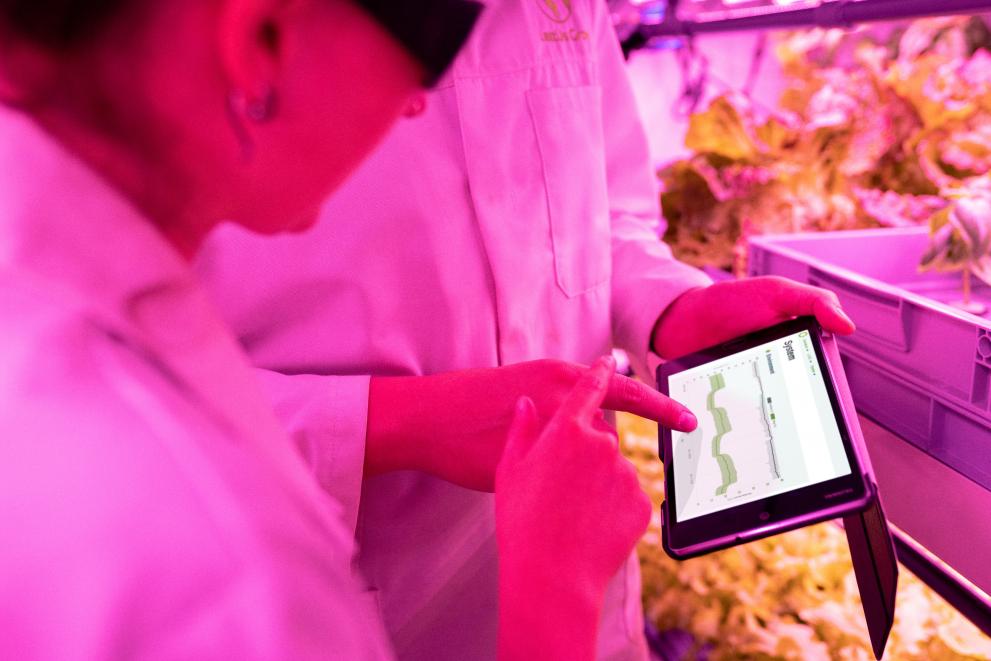
Advanced technologies such as the Internet of Things (IoT), Artificial Intelligence, data analytics, advanced materials can create favourable framework conditions under which new circular economy business models can be triggered. In Sweden, the most recent policy discussions are centered around the mission to accelerate innovation and technological development for a sustainable future and a competitive Swedish business community.
In May this year, RISE, the Swedish Research Institute has published a roadmap to highlight technologies that will become important in the coming years both from an economic and a sustainability perspective. The roadmap has been commissioned by Vinnova, Sweden’s innovation agency and the Association of Swedish Engineering Industries. New technologies, such as Artificial Intelligence (AI) will enable better efficiencies, analyses and optimisation. Detailed knowledge about these new technologies will be of key importance for the competitiveness of the Swedish industry. The most important element in relation to these technologies is sustainability and the question of how to profit from sustainability aspects.
Based on interviews and workshops with representatives from industry and academia the institute concludes that technological development is important, but also the knowledge of how to deal with change and the human role in combination with machines. It also emphasises that cooperation is getting more important: in the EU and in clusters where SMEs share knowledge and technology.
It seems that where companies may previously have looked at sustainability as a burden for its operations, most of them now also see business opportunities. The institute has noticed a shift in responsibility from (only) buyers to sellers. When a seller is taking responsibility a need for more efficiency is created. The example has been given by an AI supported refrigerator that predicts when temperature will change and when electricity is cheaper. Another example is the use of advanced materials such as bio-based fibers that can be used to create resource-efficient textiles and transform the fashion and apparel industry.
The Advanced Technology for Industry (ATI) project has recently published the Policy Brief on Responsible digital transformation – the bridge between digital and circular economy policies. This report underlines that to remain at the forefront of technological and social leadership, it is important to strengthen the connections among our digital and green policy objectives and provides of examples of policy objectives that promote such objectives. Also, on the ATI project website there is a mapping of Technology Centres with detailed knowledge and experience in the 16 defined advanced technologies. These Technology Centres are potential partners for SMEs to support them taking the next step in adopting new advanced technologies.
